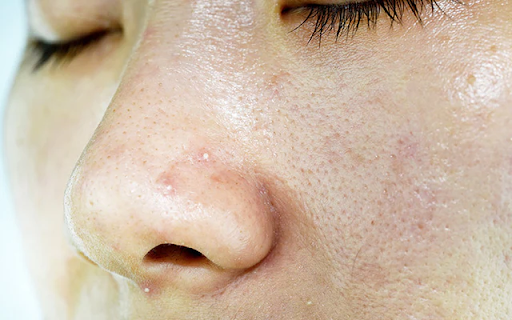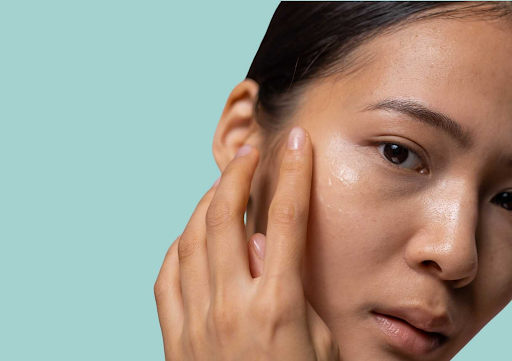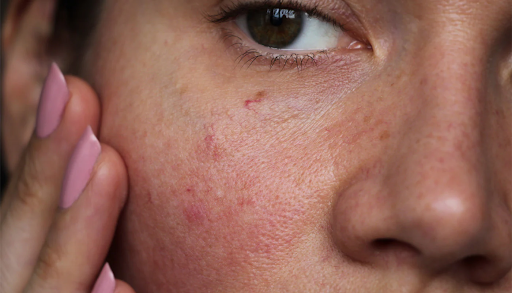When creating a skincare treatment, your skin type is undoubtedly the most crucial element to take into account. So, if you want to create a routine that actually works for you, it’s important to know where your skin falls on the skin type continuum. Although frequent cleansing and moisturizing are beneficial for all skin types, different skin types—oily, dry, normal, combination, and sensitive skin—need different care.
For this reason, knowing your skin type is essential to taking good care of it. However, how can one determine their skin type? You can find the solution by making simple observations.
What Is My Skin Type?
Your skin, the largest organ in your body, carries out many intricate and vital tasks, such as controlling body temperature and shielding you from viruses. This is particularly true of the skin barrier, which is the outermost layer of your skin. This barrier, which is primarily made up of lipids like ceramides, serves as the main gatekeeper between your skin and the outside world, allowing only water to enter and dangerous substances to exit.
All skin types require a healthy skin barrier, but it’s also critical to keep in mind that every person’s skin type is different in many ways. This indicates that getting glowing, healthy-looking skin cannot be achieved with a “one size fits all” strategy. That being said, there are a few common traits to search for that can assist you in determining your skin type.When determining whether your skin type is mostly oily, dry, normal, mixed, or sensitive, bear in mind the following key factors.
- Oily skin: A higher-than-average production of sebum, the skin’s natural oil, is indicative of oily skin. In addition to making the face look glossy or greasy, this excessive oiliness is frequently accompanied by skin issues including enlarged pores and blackheads. People with oily skin may also be more prone to breakouts because blocked pores are a significant cause of outbreaks.

- Dry skin: Skin that lacks sufficient oil is known as dry skin, which is the reverse of oily skin. A severe case of dryness can cause the skin to peel, flake, or seem dull. It can also feel tight. Although the terms “dry skin” and “dehydrated skin” are sometimes used interchangeably, they are not the same issue. Dehydration, which affects people of all skin types, is simply not getting enough water in the body.

- Normal skin: Skin that is balanced doesn’t feel overly greasy or dry. It doesn’t feel tight or greasy, flake off, or cause breakouts. Normal-skinned people usually have smooth skin, tiny pores, and a lower susceptibility to breakouts or irritation. Normal skin doesn’t have any particular problems, but it still needs to be properly cared for in order to feel and look its best. By retaining moisture and bolstering your skin’s barrier defenses, the optimum daily skincare routine helps you keep your skin hydrated.

- Combination skin: Both dry and oily skin types are represented in combination skin; the T-zone is typically oily, while the cheekbones can be either normal or dry. This skin type can change with the seasons and for a number of reasons, including hormone fluctuations and stress. For skin that is dry in some areas and oily or normal in others, proper washing and hydration are essential.

- Sensitive skin: Although it’s common to refer to sensitive skin as a skin type, there are three types of sensitive skin: normal, dry, and oily. Whatever skin type you have, if you have sensitive skin, it may seem red and feel dry, itchy, or burning. These symptoms could be caused by skin that is more sensitive to outside irritants and could be brought on by specific substances, such as fragrances or dyes, in addition to external circumstances.

Can Your Skin Type Change?
This is where things become tricky since, at some point, your skin type might change. For instance, it’s not uncommon to have oily or acne-prone skin while you’re a teenager. It does not, however, imply that you will always have oily skin. Actually, along with a number of other changes we won’t go into here, becoming older causes your skin to become drier. Therefore, having oily skin in your youth and drier skin as you age is normal.
Your skin type may also be influenced by other variables, such as the climate where you reside. For example, hot heat and high humidity are commonly connected with oilier skin, whereas cold, dry air is frequently linked to dry skin.
Why Choose Gangnam Theme Dermatology
Knowing your skin type is crucial if you want beautiful, healthy skin. Understanding your skin type helps you choose the appropriate products and create a skin care routine that suits your needs.
The good news is that you don’t need to handle things by yourself. Theme Dermatology Clinic can be your partner in this journey. Our skilled team of medical professionals at Theme Dermatology Clinic has years of experience treating acne, and they are eager to assist you in getting the skin you’ve always desired. With three board-certified dermatologists with extensive expertise, Gangnam Theme Dermatology is one of the oldest dermatology practices in Gangnam, Seoul, South Korea. It can be found right between Sinnonhyeon and Gangnam Stations, in the center of the famous Gangnam neighborhood. With an extensive experience of over 20 years in dermatology, our team of specialists is highly regarded for their expertise and unwavering commitment to excellence. Over more than 20 years, the clinic cared for patients with various skin issues and types. They can assist you with acne, pigmentation, anti-aging (lifting), scars, and other skin issues. Also, among Korean clients, they are one of the most well-known skin clinics. The variety of services they offer and their knowledge of skin issues will satisfy you.
Gangnam Theme Dermatology Booking Information
The clinic can be found at 423 Gangnam-daero, Seocho-gu, Hanseung Building, 7th Floor, Seoul, South Korea. To reach out directly, dial +821094839974 on WhatsApp and Kakao. Sending a message to Gangnam Theme Dermatology will allow you to talk about your concerns, make an appointment, or receive an online consultation. Send an email to [email protected]. You can also look through everything and ask questions on the Gangnam Theme Dermatology website by clicking this link: https://themedermatology.com/about-us/.


FAQs
More severe allergies might occasionally result in nausea and breathing difficulties. Your skin may not always be irritated if you have a dust allergy. You might not have sensitive skin, but you might be allergic to a certain chemical in skincare products. It could be able to adjust to other goods without that component. On the other hand, strong chemicals and skin care products will probably cause your skin to react if you have sensitive skin.
Based on the features you observe, you can identify your skin type through examination. Take into consideration the following traits, for instance: Oily Skin: Skin appears glossy and may feel slick to the touch. Tightness and dry, flaky patches on the skin are signs of dry skin.
Because acne can present differently on different skin types, acne is more common on oily skin types. Because of the excessive production of sebum that clogs pores, oily skin is generated. This is what leads to the emergence and progression of acne, particularly acne. Acne can, however, still occur in people with dry skin types.
Conclusion
Finding your skin type is the first step towards having youthful, healthy skin. This is due to the fact that your efforts may be in vain if you’re not utilizing the proper skincare products for your skin type, and you might even develop imaginary skin problems. Knowing your skin type in advance can help you choose the skincare products that will work for you rather than experimenting with your routine. From then, you can evaluate your skin as needed because, as you age, your skin is probably going to change and you’ll want to make sure that the products you’re using still work for your skin.

